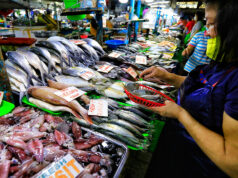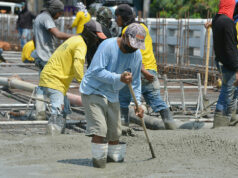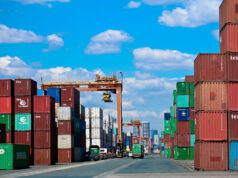Report shows ‘deliberate’ trade misinvoicing still a problem for Philippines
THE Philippines was one of the largest sources of illicit trade-related flows in 2008 to 2017 among developing countries transacting with advanced economies, according to a report by Washington-based think tank Global Financial Integrity (GFI).
According to its report released Tuesday titled “Trade-Related Illicit Financial Flows in 135 Developing Countries: 2008-2017,” the country’s value gap — or discrepancies in reported trade data — with advanced economies in that 10-year period averaged at $10.641 billion yearly, placing it 16th out of 135 developing countries studied. The total value gap reached $106.407 billion during those years.
The country’s 10-year average accounted for over a quarter or 25.44% of the country’s total trade, ranking the Philippines sixth in terms of the value gap’s share to total trade, just behind Bahamas’ 26.6% and a little over Qatar’s 25.36%.
For 2017 alone, the Philippines recorded a $12.01-billion trade value gap, up 30.66% from the $9.194 billion seen the year prior.
The report analyzed the value gap between 135 developing countries and 36 advanced economies by looking at mismatches or discrepancies in reported data of countries due to “deliberate” trade misinvoicing, which then determines illicit financial flows.
Trade misinvoicing is when importers and exporters intentionally falsify stated prices of goods “to illegally transfer value between countries, hide earnings offshore or for tax-evasion and money-laundering purposes,” the report said.
“Overall, the analysis shows trade misinvoicing is a persistent problem across developing countries, resulting in potentially massive revenue losses — at a time when most countries are struggling to mobilize domestic resources to achieve the internationally-agreed UN 2030 Sustainable Development Goals,” it read.
China topped the list with an average value gap of $323.846 billion over the decade, followed by Mexico with $62.9 billion, Russia with $56.8 billion, Poland with $40.9 billion, Malaysia with $36.7 billion, India with $36.1 billion, Thailand with $28.1 billion, Brazil with $26.3 billion, Turkey with $22.1 billion and Indonesia with $22 billion.
By region, developing Asia topped the list with an average value gap of $476.3 billion over the 10-year period, followed by developing Europe ($167.9 billion); Western Hemisphere ($131.5 billion); Middle East/North Africa ($70.6 billion); and Sub-Saharan Africa ($27.2 billion).
Cumulatively, the report found a value gap of $8.8 trillion in reported trade between 135 developing and 36 advanced countries from 2008 to 2017. In 2017, the value gap went down 3.48% to $817.609 billion from $847.105 billion in 2016.
“GFI’s estimates of the orders of magnitude of the value of trade misinvoicing underscore it is a major global challenge that must inform policy responses at the national and international levels,” it said.
To combat illicit trade-related financial flows, the Washington-based think tank said governments must make trade misinvoicing illegal, strengthen law enforcement capacities of customs agencies and its oversight of free trade zones and establish a national trade facilitation committees and multi-agency teams to address fraud, tax-evasion and other related crimes.
It also urged governments to adopt trade misinvoicing risk assessment tools, expand information-sharing between importing and exporting countries and establish public beneficial ownership registries. — BML




